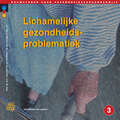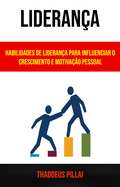- Table View
- List View
License Plate Readers for Law Enforcement: Opportunities and Obstacles
by Tom Latourrette James M. Anderson Keith Gierlack Shara Williams Lauren A. Mayer Johanna ZmudBecause license plate reader (LPR) technology is relatively new in the United States, opportunities and obstacles in its use in law enforcement are still under exploration. To examine issues about this technology, RAND conducted interviews with law enforcement personnel, police officers, and others responsible for procuring, maintaining, and operating the systems.
License to Pawn: Deals, Steals, and My Life at the Gold & Silver
by Rick HarrisonIn Las Vegas, there's a family-owned business called the Gold & Silver Pawn Shop, run by three generations of the Harrison family: Rick; his son, Big Hoss; and Rick's dad, the Old Man. Now License to Pawn takes readers behind the scenes of the hit History show Pawn Stars and shares the fascinating life story of its star, Rick Harrison, and the equally intriguing story behind the shop, the customers, and the items for sale.Rick hasn't had it easy. He was a math whiz at an early age, but developed a similarly uncanny ability to find ever-deepening trouble that nearly ruined his life. With the birth of his son, he sobered up, reconnected with his dad, and they started their booming business together.License to Pawn also offers an entertaining walk through the pawn shop's history. It's a captivating look into how the Gold & Silver works, with incredible stories about the crazy customers and the one-of-a-kind items that the shop sells. Rick isn't only a businessman; he's also a historian and keen observer of human nature. For instance, did you know that pimps wear lots of jewelry for a reason? It's because if they're arrested, jewelry doesn't get confiscated like cash does, and ready money will be available for bail. Or that WWII bomber jackets and Zippo lighters can sell for a freakishly high price in Japan? Have you ever heard that the makers of Ormolu clocks, which Rick sells for as much as $15,000 apiece, frequently died before forty thanks to the mercury in the paint?Rick also reveals the items he loves so much he'll never sell. The shop has three Olympic bronze medals, a Patriots Super Bowl ring, a Samurai sword from 1490, and an original Iwo Jima battle plan. Each object has an incredible story behind it, of course. Rick shares them all, and so much more--there's an irresistible treasure trove of history behind both the Gold & Silver Pawn Shop and the life of Rick Harrison.
Licensed to Profit: By Trading in Financial Markets
by Chris SheaChris Shea (aka the Market Coach) is an educator, counsellor and psychotherapist, who specialises in coaching clients to develop the psychological skills and drive to become independent, disciplined and successful traders and to sustain peak performance. This book is about preparing the reader to obtain a licence to trade, a vital step in the transformation to becoming profitable. The book also deals with some potential hurdles, especially with respect to the trader\'s mindset and ideas, which need to be overcome to allow efficient practice.
Licensing, Selling and Finance in the Pharmaceutical and Healthcare Industries: The Commercialization of Intellectual Property
by Martin AustinLicensing, Selling and Finance in the Pharmaceutical and Healthcare Industries is an assessment of the turbulent state of pharmaceutical and biotechnology markets as we enter the second decade of the 21st Century. At the same time, the book offers a cautionary evaluation of the future financing of innovation in terms of what's gone wrong and how to succeed in the future. Martin Austin explores the challenge that the pharmaceutical (and related) industries face in terms of balancing short term, cost containment and expenditure control in areas such as internal research and development; whilst embracing in-licensing and the acquisition of innovative therapies to counteract their impending portfolio weaknesses in the mid to longer term. The first part of the book provides an engaging and convincing perspective on the context in which the industry currently finds itself; the second part is a pragmatic guide to commercialising your intellectual property; including how to recognise and value what you have as well as the new ways of working that you will need to adopt when negotiating, collaborating and contracting in partnership and alliance with others. Commentators have described in great detail the cocktail of commercial, clinical and social issues that threaten to overwhelm the pharmaceutical industry; Martin Austin's book offers a very distinctive perspective on these issues and their solution.
Licensor: Choosing the Optimal Business Model for Innovation
by John Butman Harold L. Sirkin James P. AndrewThe choice of business model can have a dramatic effect on a company's ability to successfully achieve payback with a new product or service. This chapter shows how more and more companies are choosing licensing to achieve payback on their ideas and intellectual assets without having to make an investment in commercialization or realization.
Lichaamshouding
by Yvonne MorsinkVaardigheden in inhoudelijke analyses: het verschonen van een bed met zorgvrager het plaatsen van een dekenboog het vanuit rugligging tot zitten brengen en het hogerop plaatsen van een zorgvrager zorgvrager van rugligging naar zijligging, van zijligging naar buikligging en van buikligging naar zijligging helpen het verplaatsen van een platliggende zorgvrager in rugligging de transfer van een zorgvrager met behulp van een rugband–tillift de transfer van een zorgvrager met behulp van een tilmat–tilliftVaardigheden in studieopdrachten: basistechnieken bij het tillen en verplaatsen het toepassen van ergonomische hulpmiddelen bij het ondersteunen van een lichaamshouding maatregelen met betrekking tot decubituspreventie hanteren het plaatsen van onrusthekken de transfer van een zorgvrager van bed naar brancard hanteren van de hulpverlenerrelatie bij het aanraken van een zorgvrager wetgeving bj vrijheidsbeperkende maatregelen hanteren mantelzorgers instrueren over het gebruik van de tillif
Lichaamshouding en lichaamsbeweging
by Geerard Siereveld Cees Van StipdonkWerkcahier incl. cd-rom Lichaamshouding en cd-rom Lichaamsbeweging
Lichamelijke gezondheidsproblematiek
by J. C. Dito T. Stavast M.J. Zaagman-van Buuren J.T.E. de JongIn dit boek voor kwalificatieniveau 3 is de leerstof geordend in drie delen. Het eerste deel heeft een algemeen karakter en behandelt onder andere aspecten van de geneeskunde, de algemene farmacologie, infectieleer, pijn en algemene oncologie. In deel twee wordt ingegaan op gezondheidsproblemen, geordend naar type zorgvrager. Problemen met de ademhaling, het bewegingsapparaat, de uitscheiding etc. Deel drie tot slot is een capita selecta waarbij ondermeer aandacht voor seksueel overdraagbare aandoeningen. Het boek heeft een nauwe relatie met het boek 'Gezondheidskunde' en het boek 'Lichamelijk functioneren', die beide als ingang de zelfzorg hebben. Bij een belemmering van die zelfzorg zal sprake zijn van gezondheidsproblematiek
Lidera con tu intuición: Cómo puedes alcanzar el éxito aprovechando el poder de tus valores, sentimientos e instinto
by John TownsendQuienes somos interiormente puede determinar el éxito de liderazgo más que lo hacemos o lo que sabemos. En este libro el doctor Townsend explora el papel clave que juega el mundo interno del líder, sus emociones, su intuición, su creatividad, sus valores, su autoconciencia, su vida espiritual, y cómo estos se traducen en el éxito de una organización.Revelando vínculos entre el éxito o fracaso personal y organizacional, y el contenido del corazón del líder, el autor muestra que los líderes sobresalen no sólo a través de la habilidad e inteligencia, sino también al conectar con otros a través de las competencias, como curiosidad, atención, evaluación de la realidad, detección de distorsión, construcción de relaciones, responsabilidad, y vivir con ambigüedad. Un libro de liderazgo que solo un psicólogo mundialmente reconocido podría haber escrito.
Liderança - Dicas Para Inspirar, Influenciar E Tomar Decisões Como Um Chefe
by David LewisA liderança é complicada. Nada é constante. As coisas mudam de dia para dia e de momento para momento. Frequentemente, a melhor "ferramenta" que temos é a nossa intuição, baseada parcialmente na sabedoria das nossas experiências, e parcialmente em pura coragem. Na minha vida como mediador empresarial e mentor de desenvolvimento de liderança e consultor, descobri que os líderes mais eficazes são aqueles que conseguem olhar para bem dentro deles próprios à procura das suas próprias "verdades", e depois expressam corajosamente essas verdades a colegas, clientes e funcionários. Mas nem tudo é fácil e muitos de nós precisam de alguma ajuda.
Liderança : Desenvolva A Arte De Falar, Motivar E Influenciar Pessoas
by Brigid BerryEste é um guia indispensável e de confiança contendo ideias, conceitos e debates cruciais em torno do estudo e exercício da liderança. Trazendo textos escritos por uma enorme variedade de especialistas internacionais, este é um recurso essencial para administradores e líderes em todos os tipos de instituições e organizações, assim como para estudantes de negócios, sociologia e política. A série de livros What’s in it for Schools é escrita por especialistas em suas áreas para uma audiência de profissionais ocupados. Os livros apresentam pesquisas e ideias sobre questões educacionais atuais e fazem isso de maneira acessível e relevante. O que é necessário para ser um bom líder? Uma boa liderança ajuda escolas a serem mais bem-sucedidas? Este livro conciso e acessível examina a liderança de maneira prática, ajudando diretores, chefes, professores e pais a estabelecer seus papéis e responsabilidades e compreender os requerimentos únicos para liderança em escolas. Compre este livro hoje.
Liderança da nova geração: fazendo a diferença no século 21
by Nícolas Poloni D. A. AbramsA necessidade e as demandas da liderança mudaram radicalmente nos últimos 20 anos. Ser um líder dinâmico e eficaz de uma organização ou corporação do século 21 requer uma estratégia e um conjunto de habilidades totalmente diferentes daqueles de apenas 5 ou 10 anos atrás. Na verdade, muitos dos melhores conselhos e exemplos da última década já não se aplicam mais. Este livro analisa as formas fundamentais de se tornar e continuar sendo o líder mais eficaz possível, dado o atual cenário institucional e corporativo. Seu desejo é garantir que tenhamos líderes inspiradores e visionários no topo de nossas organizações, divisões e instituições. Eu acredito que, ao explorar e melhorar as qualidades englobadas pelo modelo de líder da nova geração que descrevo neste livro, meus leitores vão se sentir capacitados para fazer o que for preciso para liderar o sucesso em sua empresa com paixão, um propósito e excelente produtividade.
Liderança: Adote Habilidades Eficazes Para Influenciar, Comunicar E Tomar Decisões
by Matt HigginsEste livro é perfeito para indivíduos e grupos que buscam tornarem-se melhores líderes. Seja você um CEO ou um gerente de recursos humanos, começando em sua carreira com o desejo de aprimorar suas habilidades de liderança ou passando por treinamento executivo para liderança de marca e sem fins lucrativos, esse texto pode ajudá-lo a ir na direção certa. Este livro contém muitas informações essenciais e interessantes sobre Lee Kuan Yew, o fundador da Cingapura Independente. A notícia mais chocante de 23 de março de 2015 foi que Lee Kuan Yew faleceu. Este livro pretende ser um livro de memórias de Lee Kuan Yew e um registro de suas incríveis realizações para Cingapura durante seu reinado. Ao ler este livro sobre Lee Kuan Yew, a geração mais jovem pode aprender sobre sua liderança carismática, principais marcos durante seu reinado e legados inestimáveis que ele deixou para os cingapurianos. Não espere mais tempo para descobrir a sua chave para uma vida nova e melhor
Liderança: Adquira Poderosos Hábitos e Habilidades de Liderança Rapidamente
by Anas LaheyO livro é um deleite de um profissional. Adquira-o e largue na frente. Siga as instruções e a chefia morrerá literalmente por você, até mesmo na organização empresarial. O author mostra por que a industria da liderança está enfraquecendo, como ela pode ser refeita, e estabelece o reiterado relatório objetivo sobre as orientaçõs para os líderes serem honestos, autênticos, modestos, falarem a verdade, construirem confiança, e ajudarem as pessoas. Considerado versado em muitas das histórias e mitos de liderança, ele oferece as pessoas uma pespectiva mais científica das evidencias e melhores informações para orientar suas carreiras. O que você está esperando? Não espere mais! Role para cima e clique no botão ''comprar agora'' para iniciar a jornada para a vida dos seus sonhos.
Liderança: Aprimore suas habilidades de comunicação e gestão eficaz para crescimento profissional
by Jon GoldEste livro contém estratégias comprovadas sobre como motivar e gerenciar sua equipe de modo eficaz. E o que me qualifica para escrever um livro sobre liderança? Acredito que o principal seja o meu tempo servindo o Exército Britânico, já foram mais de oito anos de serviço até os dias atuais. Durante esses anos eu fiz uma excursão ao Afeganistão e muitos, muitos exercícios. Você tem o papel de liderança agora, e o que acontece em seguida? Uma vez que um líder assume uma nova equipe, uma equipe já existente ou é promovido de dentro da equipe, a responsabilidade de performance se torna dele. Existe muita informação para o novo líder digerir para que ele possa atingir o nível de performance exigido pelos seus superiores. Se você está preparado para tomar uma atitude e mudar sua vida para melhor, este livro vai definitivamente guiá-lo na direção certa!
Liderança: Capacidades Finais Para Se Tornar Num Líder Poderoso E Motivar Pessoas
by Kravis NewmanPense nisto por um momento, muitas das coisas que fazemos todos os dias têm algo a ver com alguém que nos influenciou de uma forma ou de outra. Pode ser um pai, professor, chefe, presidente ou qualquer outra pessoa que tenha conhecido ou aprendido. Isso significa simplesmente que, seja o que for que tenha aprendido, foi transformador. Isto é o que os líderes fazem; eles incutem valores e ensinamentos nos seus seguidores para que quaisquer ideologias que incorporem sejam passadas para seus seguidores anos, décadas ou até mesmo séculos depois de terem desaparecido. "Proteja seu Cabo" descreve como alguém se pode inspirar tanto em personagens não-ficcionais quanto em ficcionais. Trata-se de inspirar mulheres que enfrentam desafios como trabalhar mais de 40 horas por semana, cuidar dos seus filhos e gerir as suas casas. São fornecidas informações sobre como enfrentar e superar esses desafios quotidianos. Este livro é sobre motivar as mulheres a atingir seus objetivos, primeiro identificando suas paixões e propósitos na vida, e depois ganhando a confiança para se sobressair além de sua imaginação. Este livro também identifica como as mulheres se podem destacar como líderes na sua vida pessoal e profissional; leitores inspiradores que estão nesta encruzilhada nas suas vidas e estão prontos para mudar e fazer a diferença nas suas próprias vidas e nas vidas dos outros ao seu redor.
Liderança: Como Fazer Sua Equipe Produzir Mais e Melhor
by Archie RidgwayA crença com a qual nascemos e crescemos geralmente nos limita de muitas possibilidades e oportunidades. Essas lentes com as quais estamos acostumados nos cega da verdade. Agora é a hora de tirar essas lentes e ver o verdadeiro mundo lá fora e colher as oportunidades abundantes que você não acredita que podem ser suas. Este livro ajudará você a desenvolver sua presença de liderança. Os autores oferecem uma estrutura simples e atraente, bem como práticas para desenvolver sua "voz única". Onde quer que você esteja em uma organização, você pode desenvolver presença se for capaz de fazer duas coisas bem: demonstrar seu valor e distinção autênticos; e conectar-se aos outros de uma maneira positiva. Líderes que são capazes de ser autênticos enquanto se conectam e impactam os outros têm o que os autores chamam de voz de assinatura - um meio de auto-expressão que é única e distintamente sua. Uma vez que você abraça e expressa esta habilidade inestimável, você não acreditará no tremendo impacto que pode ter sobre aqueles que o cercam. Repleto de histórias e exemplos da vida real, o livro “Own the Room - Tenha uma Presença Dominante” irá desmistificar a noção de presença e fornecer conselhos práticos sobre como você pode desenvolvê-la.
Liderança: Conheça de forma atualizada e pratica os fundamentos da liderança do mundo moderno.
by Thaddeus Pillai"Que recurso! Em Coaching for Liderança, os melhores treinadores do mundo se reúnem para apresentar um tutorial avançado sobre a arte de coaching. Qualquer pessoa interessada em se tornar um coach executivo, seja como prática individual ou em sua organização, deve comprar imediatamente e leia este guia prático essencial. O Assassino da Liderança: Recuperando a Humildade em uma Era de Arrogância expõe a arrogância como a falha de liderança mais letal. Ser um bom líder não requer ser uma pessoa má e, se você souber o que procurar, o tesoureiro e Havlik apontam, você pode manter seu ego e arrogância sob controle e se tornar (e permanecer) um líder eficaz, bem sucedido e bom. O que você está esperando? Não espere mais! Role para cima e clique no botão comprar agora para começar a jornada para a vida dos seus sonhos!
Liderança: Desenvolva Suas Habilidades Gerenciais E Se Comunique De Forma Eficaz Com Sua Equipe
by Brian HawkesNa Teoria da Liderança Baseada em Pontos Fortes, o autor dos best-seller número um do New York Times, Tom Rath e o renomado consultor em Lideranças, Barry Conchie, revelam os resultados de sua pesquisa. Com base em suas descobertas, o livro identifica três pontos-chave para tornar-se um líder mais eficaz: conhecendo seus pontos fortes e investindo na dos outros; colocar em sua equipe, pessoas com as forças certas e compreender as quatro necessidade básicas daqueles que buscam por sua liderança. Este livro explica como construir carisma, confiança e determinação que muitos líderes de projeto demonstram ter. Seja para uma apresentação importante ou organizar uma reunião difícil, você será motivado a abordar estas situações com novas forças. Se você estiver pronto para tomar decisões e mudar a sua vida para melhor, então este livro definitivamente irá guiá-lo para a direção certa.
Liderança: Guia De Gerenciamento Para Ser Extraordinário Na Comunicação De Influência
by David PopovicA desenvoltura da liderança é a competência principal necessária para o sucesso contínuo no atual ambiente de negócios complexo e acelerado. Ricamente ilustrado com episódios baseados em pesquisas originais e décadas de trabalho com clientes, esse livro inovador identifica cinco níveis pelos quais os líderes passam no desenvolvimento de sua desenvoltura. Significativamente, somente 10% dominaram o nível de desenvoltura necessário a uma eficácia consistente em nossa era turbulenta de competição global. Escrito em um estilo motivador e prático, esse livro não somente fornece um mapa que orienta os leitores a identificar seu nível atual de desenvoltura. Também, fornece conselhos práticos e exemplos concretos que mostram aos gestores e aos profissionais de desenvolvimento de liderança como podem trazer maior desenvoltura às iniciativas que recebem todos os dias. SE VOCÊ ESTÁ PRONTO PARA ENTRAR EM AÇÃO E MUDAR SUA VIDA PARA MELHOR, ESSE LIVRO DEFINITIVAMENTE TE GUIARÁ NA DIREÇÃO CERTA!
Liderança: Guia De Gestão Para Ser Excepcional Em Influencia, Comunicação E Tomada De Decisão
by David PopovichA Agilidade de Liderança é a principal competência necessária para o sucesso sustentável no ambiente de negócios complexo e acelerado de hoje. Ricamente ilustrado com histórias baseadas em pesquisas originais e décadas de trabalho com clientes, este livro inovador identifica os cinco níveis que os líderes passam desenvolvendo sua agilidade. De maneira significativa, apenas 10% dominaram o nível de agilidade necessário para uma eficácia consistente em nossa turbulenta era de competição global. Escrito em um estilo envolvente e realista, este livro não apenas fornece um mapa que orienta os leitores a identificar seu nível atual de agilidade. Ele também fornece conselhos práticos e exemplos concretos que mostram aos gerentes e profissionais de desenvolvimento de lideranças como eles podem trazer maior agilidade às iniciativas que tomam todos os dias. Se você está pronto para agir e mudar sua vida para melhor, este livro definitivamente irá guiá-lo na direção certa!
Liderança: Habilidades Definitivas Para Se Tornar Um Líder Influente E Tomar Grandes Decisões
by Michael JosephsLiderar pode ser difícil. Pode mantê-lo acordado durante a noite, ou fazer com que você queira desistir da vida em sociedade para morar em uma caverna distante, bem distante. Se você acabou de receber uma posição de liderança, em breve irá descobrir que a realidade pode ser muito mais desafiadora do que dizem os livros didáticos. Se já assumiu essa posição há algum tempo e agora está lutando para mantê-la, talvez precise apenas relembrar os fundamentos que irão te dar suporte em momentos difíceis (além de ajudá-lo a manter seu emprego). Uma das piores mentiras que o Diabo vendeu a igreja, está relacionada a liderança e, infelizmente, nós compramos e promovemos essa ideia diabólica. A partir dela, líderes religiosos foram vistos como reis e comandantes militares, enquanto seus membros como escravos e soldados. Provavelmente por esse motivo, a igreja tem perdido a credibilidade. Neste pequeno livro, Dr. Olowosoyo procura concertar essa ideia equivocada. Adquira hoje mesmo.
Liderança: Livro de Liderança Sobre Como Influenciar, Motivar E Se Comunicar Com Seu Time E Ser Bem-Sucedido
by Harvard ShottonO que é necessário para ser o bom líder? Talvez você recentemente tenha sido promovido no trabalho ou seja o chefe de um negócio. Pode ser que você eteja em uma posição de liderança por um longo tempo, seja em lojas, na indústria de serviços, produção, recursos humanos, educação, finanças, uma grande empresa ou talvez um gerente de linha. Liderança é importante no mundo de hoje. Sempre foi. Muitas pessoas a vêem como algo que você simplesmente nasceu para ser. Porém, eles não percebem que é uma composição de diferentes habilidades que você aprendeu com o tempo. Quando você colca todas essas habilidades juntas, você se TORNARÁ um grande líder. Não é uma questão de se, mas de quando. Mas primeiro, você precisa aprender mais sobre as habilidades que deve adquirir. Baixe sua cópia desse livro hoje para descobrir quais habilidades você precisa trabalhar hoje se você quer se tornar uma GRANDE líder que tem seus próprios seguidores ao longo do tempo. Adquira sua cópia hoje clicando no botão no topo desta página
Liderança: Melhores habilidades para tomada de decisão, persuasão e desenvolvimento pessoal
by Darren WesternAs qualidades e características de liderança têm sido estudados e tema de debate há séculos. Qual é o meu estilo de liderança? Quais são as características de uma liderança eficaz? Encontrar o líder em você o ajudará a torná-lo mais bem-sucedido. O resultado final é sempre superar. As habilidades de gerenciamento são críticas, mas não são suficientes para fornecer excelência. Excelência exige grande liderança. Este guia ajuda você a encontrar essa excelência e qualidades em ser um líder de sucesso. Antes de se tornar um bom supervisor ou gerente, você deve aprender a ser um líder. Liderança é o primeiro passo para se tornar alguém que pode realizar metas gerenciando pessoas. Isso é exatamente o que é Liderança: O Primeiro Passo é tudo. Ele fornece orientações e dicas para o supervisor ou gerente inicial - dicas que permitirão não apenas gerenciar, mas também liderar pessoas e se tornar bem-sucedidas. Inclui capítulos e seções sobre disciplina, organização, ensino, definição de um bom exemplo pessoal, bons hábitos de trabalho, segurança, reuniões de equipe e muito, muito mais.
























